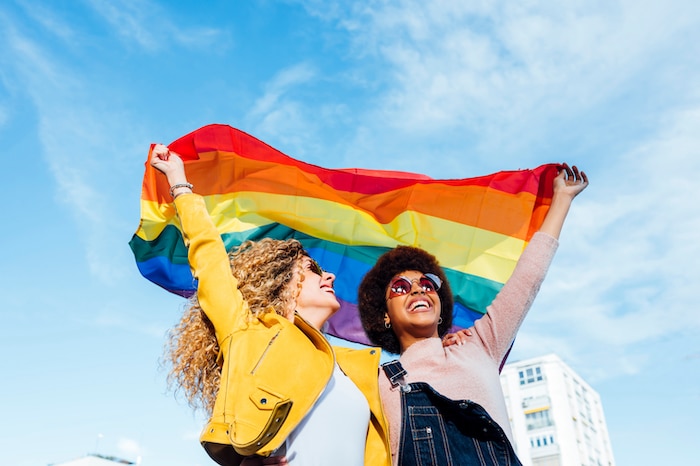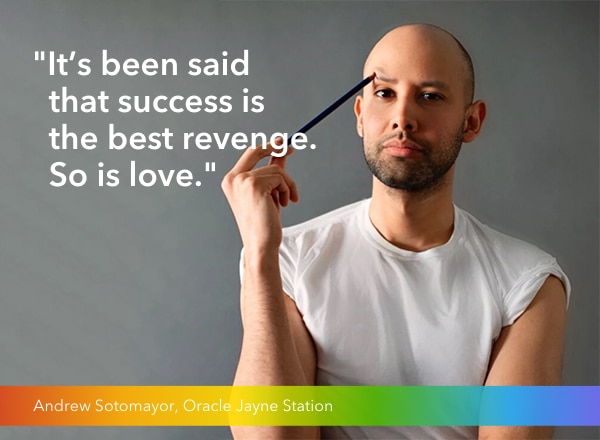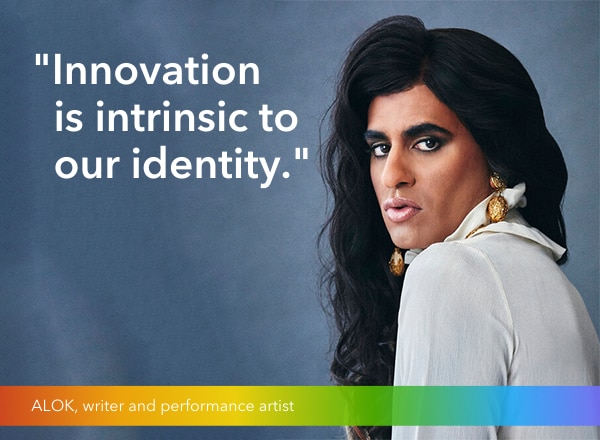Andrew Sotomayor: This year, I’m assembling backpacks to donate to the young LGBTQ+ people at the Ali Forney Center. There are websites like BagsInBulk.com where you can order backpacks prefilled with school supplies and toiletries, each for less than the cost of lunch. I decided to add markers and drawing pads, too. Growing up, art was an important part of discovering who I am, taking care of my emotional health, and creating beautiful things to put into the world.
What challenges have you had to overcome as a LGBTQ+ entrepreneur?
Genavieve Jaffe: I use my wife and family in my marketing, so I am sure the images turn people off. But those are not the people I want to work with anyway, so I feel like my branding weeds people out for me.
Brendan Pang: On the whole, being an LGBTQ+ entrepreneur in the public space has been positive. I’ve had opportunities to share my story on platforms such as TEDx and charities like Minus 18 have provided me with a sense of inclusivity. Regardless, there have been challenges more notably on social media where I have experienced homophobic comments on posts where I am actively promoting diversity.
ALOK: Pigeonholing. People think that your work is just relevant to LGBTQ+ people and issues. This denies the full scope, complexity, and expanse of the work. And discrimination. People don’t trust us. They think they are doing us a favor, when in fact we are so business savvy and competent. Also, invalidation—people don’t believe the work that we do is legitimate and necessary.
Stoney Love: It was quite challenging being another queer brand. I found that earning the trust of my community took a while to build. People want to know that you’re of the community and not a trendy queer brand. Over the years, our peers have embraced the brand after seeing that we are them and have the best intentions to represent us.
Andrew Sotomayor: The biggest challenge is constantly reminding myself to ignore the need to feel confident, and instead to just choose courage. Courage is when you do something important even if you’re afraid. Queer people, artists, women, people of color have been told to be cute, compliant, to hide our identities, or accept when we get only the minimum of what we deserve. Deciding to stand up, be ambitious, and do the work is the first of many challenges we need to overcome.














